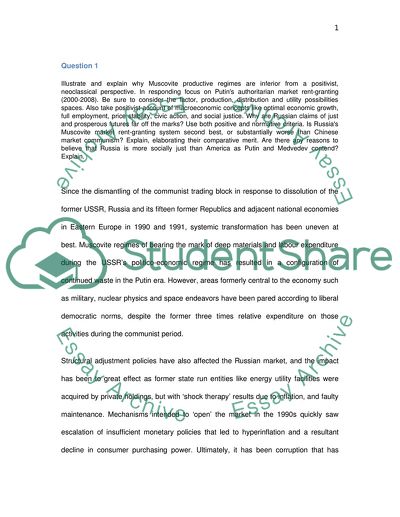Cite this document
(Russian Economics and Muscovite Regimes Assignment, n.d.)
Russian Economics and Muscovite Regimes Assignment. Retrieved from https://studentshare.org/macro-microeconomics/1738409-russian-economics
Russian Economics and Muscovite Regimes Assignment. Retrieved from https://studentshare.org/macro-microeconomics/1738409-russian-economics
(Russian Economics and Muscovite Regimes Assignment)
Russian Economics and Muscovite Regimes Assignment. https://studentshare.org/macro-microeconomics/1738409-russian-economics.
Russian Economics and Muscovite Regimes Assignment. https://studentshare.org/macro-microeconomics/1738409-russian-economics.
“Russian Economics and Muscovite Regimes Assignment”, n.d. https://studentshare.org/macro-microeconomics/1738409-russian-economics.


